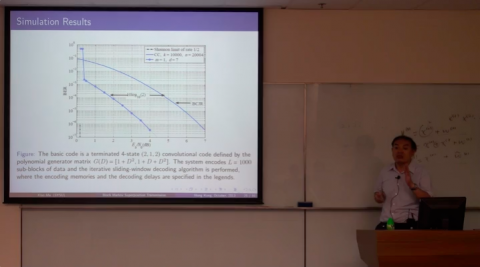
Block Markov superposition transmission (BMST) is a method for constructing big convolutional codes from short codes. The discovery of BMST construction is motivated by the superposition blockMarkov encoding (SBME) technique, which has been widely used to prove multiuser coding theorems. The encoding process of BMST can be as fast as that of the involved short code, while the decoding process can be implemented as an iterative sliding-window decoding algorithm with a tunable delay. More importantly, the performance of BMST can be simply lower-bounded in terms of the transmission memory given that the performance of the short code is available. Numerical results show that, 1) the lower bounds can be matched with a moderate decoding delay in the low bit-error-rate (BER) region, implying that the iterative sliding-window decoding algorithm is near optimal; 2) BMST with repetition codes and single parity-check codes can approach the Shannon limit within 0.5 dB at BER of 10^-5 for a wide range of code rates; and 3) BMST can also be applied to nonlinear codes.
Xiao Ma is now a Professor with the Department of Electronics and Communication Engineering, Sun Yat-sen University, Guangzhou, China. He received the Ph.D. degree in communication and information systems from Xidian University, China, in 2000. From 2000 to 2002, he was a Postdoctoral Fellow with Harvard University, Cambridge, MA. From 2002 to 2004, he was a Research Fellow with City University of Hong Kong. Dr. Ma’s research interests include information theory, channel coding theory and their applications to communication systems and digital recording systems. Dr. Ma is a co-recipient, with A. Kavcic and N. Varnica, of the 2005 IEEE Best Paper Award in Signal Processing and Coding for Data Storage. In 2006, Dr. Ma received the Microsoft Professorship Award from Microsoft Research Asia. Dr. Ma is a member of the IEEE.
